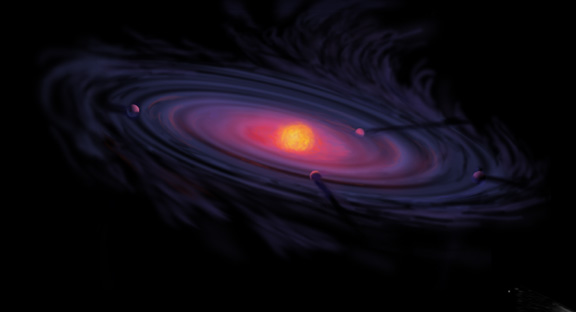




Earlier version presented at
http://www.birmingham.ac.uk/schools/mathematics/news-and-events/birmingham-popular-maths-lecture.aspx
The Association for Science Education (ASE) Conference
(Key Speakers)
Held its annual conference on Wednesday 8th to Saturday 11th January 2014, at
The University of Birmingham
The Association is a community of teachers, technicians, and other professionals
supporting science education and is the largest subject association in the UK.
It is an independent and open forum for debate and a powerful force to promote
excellence in science teaching and learning,
(Abbreviated link to this page: http://tinyurl.com/CogMisc/math-talk.html )
_____________________________________________________________________________________
One of the talks was
Short Abstract
Since Alan Turing discussed the possibility of intelligent machines in 1950_____________________________________________________________________________________
there have been many outstanding achievements in artificial intelligence,
robotics and computational cognitive science -- including powerful logical
and algebraic theorem provers and proof checkers, programs that model
complex physical processes, and increasingly impressive mobile robots.Yet we don't know how to give a machine spatial reasoning abilities found in
very young children and many other animals, apparently required for the
discovery of the simplest truths and proofs in Euclidean geometry leading
up to Euclid's Elements, one of the greatest books ever written, which
included, for example, proofs about triangles that current computers cannot
follow.Can we understand what's missing in computers, and how it evolved in humans, and
perhaps other animals? Does mathematical spatial reasoning require new forms of
computation?See the longer abstract below.
-----
Euclidean geometry is one of the greatest products of human minds, brought together in
Euclid's Elements over two millennia ago.
However, at some distant earlier time there were no geometry textbooks and no teachers.
So, long before Euclid, our ancestors, perhaps while building huts, temples and pyramids,
measuring fields, making tools or weapons, or reasoning about routes, must have noticed
facts about spatial structures and processes that are both useful (like facts about
physics, geography, biology, and human languages), but are also demonstrable by reasoning
with logic and diagrams. Mathematicians do not have to keep checking that their
discoveries remain true at high altitudes, or in cold weather, or on surfaces with unusual
materials or colours -- because they can prove things.
This is totally different from noticing some regularity in the environment, or
finding by repeating an experiment, that a particular result happens regularly (e.g.
if a spinning coin drops to the floor it doesn't end up balanced on its edge, but lying
flat. What is discovered by mathematical reasoning has nothing to do with high
probabilities. Rather a proof shows that something is necessarily the case because
alternatives are impossible.
Without help from teachers, biological evolution somehow produced information-processing
mechanisms that allowed ancient humans to develop the concepts, notice the
relationships and discover the proofs that their descendants are taught at school --
which we also have the ability to discover for ourselves.
This suggests that normal human children have the potential to make those discoveries
themselves, under appropriate conditions. I suspect there are also deep connections with
competences that have evolved in other intelligent species that understand spatial
structures, relationships and processes -- such as nest-building birds, squirrels that
steal nuts from bird feeders, elephants that manipulate water, mud, sand and foliage with
their trunks, and apes coping with many complex structures as they move through and feed
in tree-tops.

[How did the squirrel get up to the bird feeder?]
Can we replicate evolution's achievements, and create robots that start off with
competences of young children and later, as they develop, make simple discoveries in
Euclidean geometry? I'll try to analyse some unobvious details of the reasoning
processes, to explain why making such discoveries is not a feature of current robots,
or other Artificial Intelligence, systems.
It is not easy to get machines to do that -- but perhaps not impossible.
There have been great advances getting computers to reason logically, algebraically and
arithmetically, but the kinds of reasoning in Euclid, e.g. using diagrams, are very
different.
Many current robots perform physical tasks, like walking, juggling, climbing, swimming and
recovering lost balance very impressively, yet they cannot reason about what they have
done or why it works or what else could have been done -- abilities required for discovery
of geometrical constraints on spatial structures and processes implied by Euclid's axioms.
I'll discuss some of the problems and possible ways forward. Perhaps someone now studying
geometry and computing at school will one day design the first baby robot that grows up to
be a self-taught robot geometer, and, like some of our ancestors, discovers for itself why
the angles of a planar triangle must add up to exactly half a rotation.
A more detailed discussion of some of the issues is available here:
http://www.cs.bham.ac.uk/research/projects/cogaff/misc/mathsem.html
From Molecules to Mathematicians:
How could evolution produce mathematicians
from a cloud of cosmic dust?
A Protoplanetary Dust Cloud?

[NASA artist's impression of a protoplanetary disk, from WikiMedia]
_____________________________________________________________________________________
This is part of the Turing-inspired Meta-Morphogenesis project:
http://tinyurl.com/CogMisc/meta-morphogenesis.html
For more on the current state of Artificial Intelligence see http://aitopics.org/
Adam Ford has a large and growing collection of video interviews and recorded workshop and
conference presentations related to AI and other computing advances, by many scientists,
philosophers, artists, and others, here:
http://www.youtube.com/user/TheRationalFuture/
including an interview with Aaron Sloman closely related to the topic of this talk
http://www.youtube.com/watch?v=iuH8dC7Snno
with a transcript here:
http://www.cs.bham.ac.uk/research/projects/cogaff/movies/transcript-interview.html
A more detailed (but still incomplete) discussion of the topics can be found here
http://www.cs.bham.ac.uk/research/projects/cogaff/misc/mathsem.html
_____________________________________________________________________________________
_____________________________________________________________________________________

Installed: 26 Feb 2013
Last updated: 1 Apr 2013; 29 Aug 2013 (reformatted); 27 Nov 2013 (Added ASE
Conference); 10 Jan 2014; 17 Jan 2014
Maintained by
Aaron Sloman
School of Computer Science
The University of Birmingham